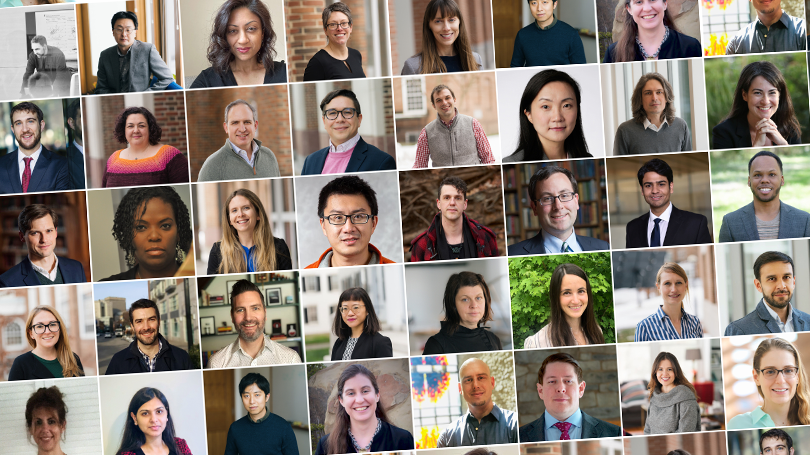
New Faculty Bring Wide-Ranging Talent, Knowledge to Dartmouth
Posted on February 23, 2021 by Megan Landgraf
A cohort of teacher-scholars joined the Dartmouth community this academic year.
Dartmouth welcomes 38 new tenured or tenure-track faculty members to the community this academic year. Embracing curiosity as a basis for their teaching and research, these new faculty bring with them a wealth of knowledge in a range of disciplines and exemplify Dartmouth's teacher-scholar model.
As Assistant Professor of Economics Apoorv Gupta, one of the new faculty, says, "Curiosity feeds and drives the thinking of a scholar. ... As a teacher, I strive to stimulate similar curiosity in my students about the things they are passionate about."
Another new faculty member, Kimberley Samkoe, an associate professor of engineering, says, "The question 'why?' is a powerful force for advancing knowledge and understanding."
Provost Joseph Helble praises the flexibility of these new faculty members in joining the community during a global pandemic and their ingenuity in maintaining engaging virtual classes.
"In this challenging time, we welcome our new faculty members, who bring a passion for their work and a global perspective to this vibrant community of Dartmouth scholars. The joy they take in their creative work, in their research and their teaching, will inspire curiosity in their students, and that, in turn, will lead to discoveries that increase our understanding of the world," he says.
Learn more about Dartmouth's newest tenured or tenure-track faculty.
César Alvarez
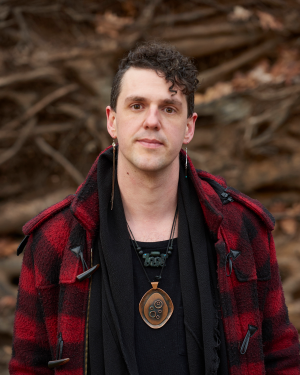
Assistant Professor of Music
Faculty Associate, Dartmouth Consortium of Studies in Race, Migration, and Sexuality
- MFA, Bard College
- BM, Oberlin Conservatory
I am a composer, lyricist, playwright, and performance maker. I create large experimental musicals as non-normative possibility spaces for embodiment, inter-dimensionality, socio-political transformation, kinship, and coexistence. With a background as a jazz saxophonist, band leader, and sound artist, my work inhabits a space between the worlds of theater, music, performance art, and social practice.
On curiosity: I am curious about the vibrational worlds that are proposed by composers and music makers. In my own creative practice, I center curiosity and allow intuition and playfulness to lead my ear and hand. As a teacher, I work hard to create community and mutual regard between my students. I've found that when my students feel connected to one another they are more willing to follow their own curiosity and venture into the uncertain artistic territory that is most urgent for them.
Amanda Amodeo
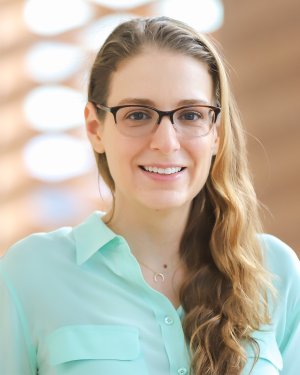
Assistant Professor of Biological Sciences
- PhD, Stanford University
- BS, University of Wisconsin, Madison
Every cell in your body maintains a characteristic cell size necessary for its function. I'm interested in the molecular "rulers" that cells use to measure their size. I use the early embryo of the fruit fly Drosophila to study how the first cell divisions after fertilization divide the giant single celled embryo into the correct number of smaller cells to achieve the correct final cell sizes. This basic biology work has implications for human cancers.
On curiosity: Curiosity is the main motivation for all of my lab's work. It is remarkable that in 2021 we don't have the answers to basic questions like, "How do cells know how big they are?" This is wonderful for me, because now I get the chance to help figure it out!
Prachee Avasthi
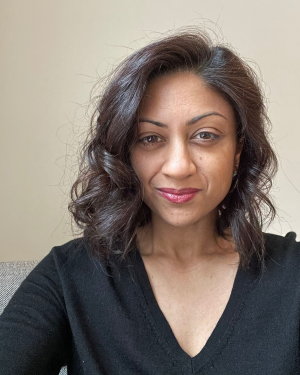
Associate Professor of Biochemistry and Cell Biology
- PhD, University of Utah
- BS, University of Illinois at Urbana-Champaign
Our lab investigates how complex assemblies of the cell's skeleton (A.K.A. cytoskeleton) are built. We study two fundamental components of the cytoskeleton: microtubules and actin, as well as how the two work together. Using green algae as a powerful tool, we aim to discover new biology shared with human cells to improve human disease, but also as a window into the diversity of cytoskeletal properties, structures, and functions. We do basic science research not just for all the reasons we can imagine, but for all the reasons we can't.
On curiosity: When there is so much more unknown than known, there are infinite possibilities for what scientific questions to pursue. Curiosity is arguably as good of a way to decide where to focus our efforts as any, and indeed a lot more fun! I sometimes say that if I started over in science 1,000 times, 999 of those I would probably end up studying the cytoskeleton. This is in large part because of its unquestionable role in nearly all cellular processes and its complexity across scales.
Jason Barabas '93
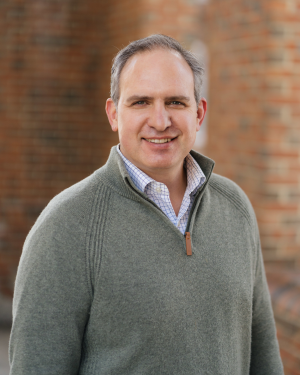
Professor of Government
Director of the Nelson A. Rockefeller Center for Public Policy and the Social Sciences
- PhD, Northwestern University
- AB, Dartmouth College
Jason Barabas '93 earned his PhD in political science from Northwestern University and his AB in government from Dartmouth. He has held postdoctoral fellowships at Harvard and Princeton as well as faculty positions in New York, Florida, and Illinois. Beyond directing the Rockefeller Center for Public Policy and the Social Sciences, Barabas teaches and conducts research on public policy, opinion preferences, and political knowledge—often with an emphasis on research design, statistics, and methodology.
On curiosity: Curiosity is important. Understanding why the world works as it does plays a big role in academic research and in the lessons that are brought into the classroom.
Jessica Beckman
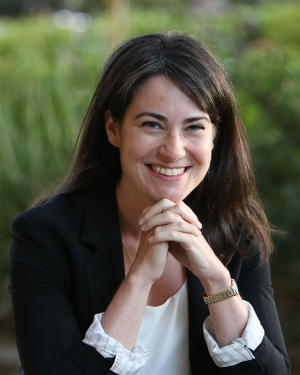
Assistant Professor of English and Creative Writing
- PhD, Stanford University
- MA, Georgetown University
- BA, The George Washington University
I study early modern English literature with a particular focus on form and materiality. While we assume today that words are the sole unit of literary meaning, my current research examines how texts can meaningfully diversify the ways readers move through them. This dynamism creates new avenues for metaphor and links these experiments to avant-garde projects across history. In my writing and teaching, I explore subjects stretching from 16th-century poetry to the future of the book.
On curiosity: As a humanist, I'm naturally curious about people—what they want, where they come from, and how they experience the world. Literature goes deep into human experience, unearthing desires and ideas that can't always be captured by common language. To be curious about literature in my classroom means recognizing that strangeness—whether it stems from historical difference, formal ingenuity, or poetic language—offers opportunities to see the world in a new way.
Kimberly Juanita Brown
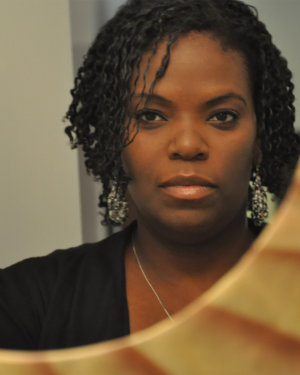
Associate Professor of English and Creative Writing
Co-director, Dartmouth Consortium of Studies in Race, Migration, and Sexuality
- PhD, Yale University
- MA, Yale University
- MPhil Yale University
- BA, Queens College, City University of New York
My research gathers at the intersection of Black Atlantic literature and visual culture. I am particularly interested in the interplay between photography, poetry, and fiction in the latter half of the 20th century.
On curiosity: I'm curious about Black cultural production in the aftermath of transatlantic slavery, and this curiosity sustains my thinking across multiple research and writing projects. To be able to attend to the questions that animate your thinking is a real gift. I do not take it lightly.
Danielle Callegari
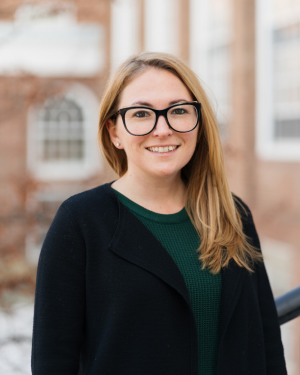
Assistant Professor in the Department of French and Italian
- PhD, New York University
- BA, New York University
My teaching and research focus on premodern Italian literature and food and wine studies. I have published on a variety of subjects, including Dante, medieval food and wine culture, early modern women's writing and religion, and modern Italian food and politics. My first monograph, Dante's Gluttons: Food and Society in Medieval Italian Literature, is forthcoming with Amsterdam University Press. I currently have two projects in development: the first on the long history of the Italian cookbook and its politics beginning with Frederick II's 13th-century Liber de coquina; the second on Italian journalist Mario Soldati and Italian wine following the creation of the EEC.
On curiosity: I would consider curiosity the primary driving factor behind both my work and my teaching. The desire to learn about something new and different is what gives me energy to continue research and forms the underlying structure of my course design.
Hsien-Chih Chang
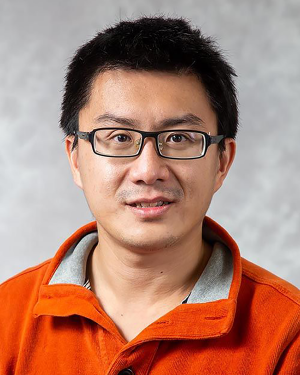
Assistant Professor of Computer Science
- PhD, University of Illinois at Urbana-Champaign
- BSc, National Taiwan University
My main research area is in, one, computational topology and geometry. I find low-dimensional objects like points, lines, polygons, curves, surfaces, triangulations, meshes, and so on very cute; and two, graph theory and algorithms, usually from a structural perspective. More broadly, I am interested in connections between mathematics and theoretical computer science, especially in applying topological tools to understand efficiency of computation.
On curiosity: Curiosity is the main (if not the only) driving reason to think about abstract objects! Similarly, my ultimate goal for any kind of teaching is to inspire and light up the curiosity of each student.
Charles Crabtree

Assistant Professor of Government
- PhD, University of Michigan
- MA, Pennsylvania State University
- MA, Northwestern University
- BA, University of Colorado at Boulder
My research focuses on fairness in politics, with applications to several areas, including the study of repression, human rights, policing, and immigration. Most of my work in this vein examines the politics, economics, and sociology of discrimination. Increasingly, I study discrimination in Japanese politics, an important but insufficiently examined case. Methodologically, I use experiments and text data to better understand these social phenomena.
On curiosity: Zora Neale Hurston, an acclaimed author and anthropologist, once said that, "Research is formalized curiosity. It is poking and prying with a purpose." This quote captures my approach to work, which is curiosity practically applied to social, political, and economic problems.
Marcela Di Blasi
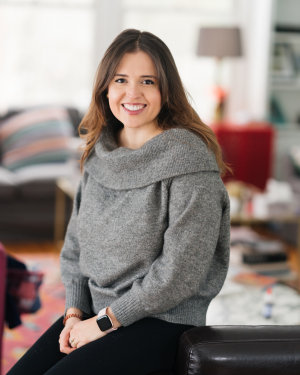
Assistant Professor of Latin American, Latino, and Caribbean Studies
- PhD, New York University
- MPhil, Cambridge University
- BA, Williams College
I work on Latinx literature and popular culture. I'm interested in what we can learn about how we envision a better future by attending to the very young and the very old. My current book project, "Fighting With Your Mother: Latinx Literature and Generational Conflict," argues that Latinx literature stages the labor of story-telling in tandem with the labor of reproductive labor both inside the home and in the marketplace. I am also pursuing projects considering multi-ethnic speculative fiction, spirituality, and aging. I want to know what happens to women after the ends of traditional narrative forms. What kinds of forms emerge to tell the stories of older women?
On curiosity: My work is invested in taking notions of wonder, whimsy, and curiosity seriously because that is how we engage works of fiction. As readers, we follow the breadcrumbs as the text sets them out because we have become hungry to learn more, explore more, and realize more. Without curiosity, we would never be able to appreciate tragedy, enjoy happily ever after, or wonder what happens after. In my pedagogy, we learn how the questions we ask of a text will often shape the politics that emerge from the narrative. Curiosity is a discipline, and not a mystified intangible. I set out to teach all my students that reading literature is really about learning how to ask the questions about which we care most.
James Dobson
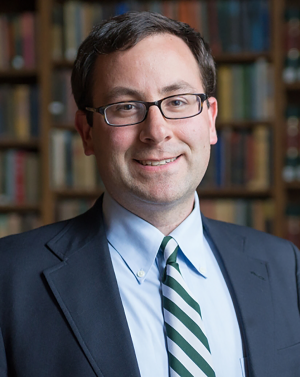
Assistant Professor of English and Creative Writing
Director of the Institute for Writing and Rhetoric
Faculty Associate, Dartmouth Consortium of Studies in Race, Migration, and Sexuality
- PhD, Indiana University
- MA, University of Chicago,
- BA University of Massachusetts, Amherst
I study culture, in particular American culture, through the lens of intellectual history, in order to understand complex dynamics that reveal common threads and deep histories to ideas that initially appear utterly without precedent or those assumed left far in the past. I've written autobiographical narratives, literary realism and naturalism, and the history of technology, including machine learning and computer vision. I am also interested in theoretical questions about interpretation and computational text analysis.
On curiosity: Teaching always sparks moments of creativity for me and this gives life to my research. Dartmouth students bring a diversity of thought and experience to the classroom and this results in a generous spontaneity that enables us all to rethink both the objects in front of us and our assumptions. I worry that some of the methods, even some of the most innovative and new approaches, used to study culture may prevent or stultify creativity, and try to work against this by drawing on a range of intellectual traditions and collaborating with others.
Emily Finn
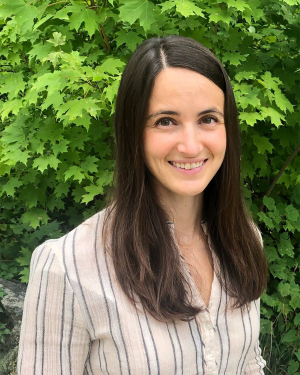
Assistant Professor of Psychological and Brain Sciences
- PhD, Yale University
- BA, Yale University
What makes us unique? How do our intrinsic traits bias our perceptions and judgments, and how is this reflected in patterns of brain activity? Why might different people arrive at different interpretations of the same experience? My research combines behavioral, neuroimaging and computational techniques to study individual differences in cognition, especially under rich, dynamic, "naturalistic" stimulation, such as watching movies or listening to stories.
On curiosity: I am curious about so many phenomena in psychology and cognitive neuroscience and am always looking for ways to incorporate new theories and methods into my research. As a teacher, I try to help students find a question or topic that sparks their natural curiosity and use this as a framework for teaching new skills and ideas. Having a goal in mind that students find genuinely interesting helps keep them motivated to learn and apply challenging concepts.
Matthew Grant
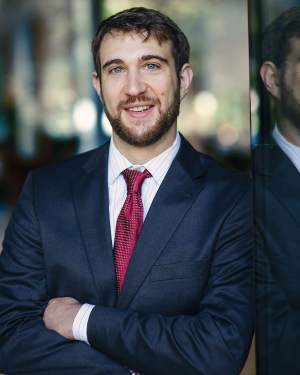
Assistant Professor of Economics
- PhD, Yale University
- BS, Yale University
I study international trade, particularly how and why governments regulate trade.
On curiosity: The world is an amazing place—pretty much everything is interesting, if you think about it hard enough. I feel incredibly lucky to have so many opportunities to learn in the course of doing research and from gifted students and colleagues.
Apoorv Gupta
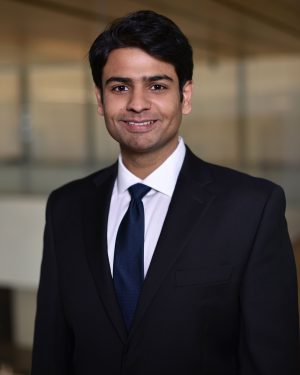
Assistant Professor of Economics
- PhD, Northwestern University
- MS, Stanford University
- BA, Indian Institute of Technology
My primary research fields are development economics, finance, and macroeconomics. In my recent work, I have studied factors behind large productivity gaps among firms in India. What policies can reduce these gaps and increase total economic output? I have also studied the role of low-cost cellphone technology in increasing agricultural productivity in India.
On curiosity: Curiosity feeds and drives the thinking of a scholar. As a researcher, I believe that one must always be curious to ask the most relevant questions, and not shy away from seeking their answers. As a teacher, I strive to stimulate similar curiosity in my students about the things are passionate about.
Geoffroy Hautier
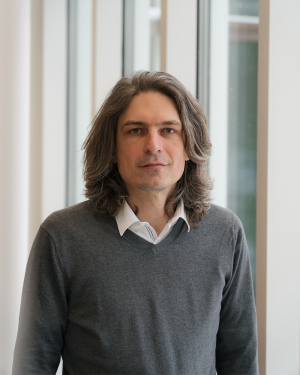
Hodgson Family Associate Professor of Engineering
- PhD, Massachusetts Institute of Technology
- MS, Ecole Centrale Paris
- MS, Université Libre de Bruxelles
- BS, Université Libre de Bruxelles
My broad field of expertise is material science and engineering. The ultimate goal of this field is to engineer better materials from stronger alloys for airplane engines, to materials for longer lasting batteries. I specialize in computational materials science where computers, advanced physical modeling, and more and more of artificial intelligence are used to accelerate the design and discovery of new materials.
On curiosity: Curiosity is a fundamental human impulse, as anyone who has interacted with young kids can tell. I see my role as a teacher to cultivate this natural curiosity in all students and share my passion for science and technology. In research, I have been very curious and fascinated to see how computers have been revolutionizing our way of doing research, especially in the field of materials science.
Caitlin Howe
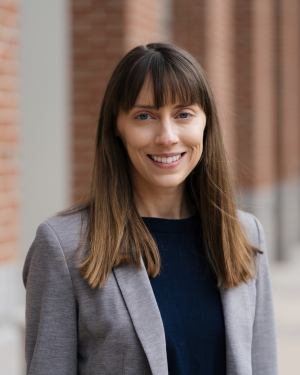
Assistant Professor of Epidemiology
- PhD, Columbia University
- BA, Pomona College
My research investigates how environmental contaminant exposures impact maternal and child health. I am particularly interested in the health impacts of complex chemical mixtures and am currently studying how metal mixture exposures during pregnancy and in early childhood affect growth and cardiometabolic health. I am also very interested in the molecular processes underlying these effects and have been examining epigenetic dysregulation as one potential mechanism.
On curiosity: Before we're born, our environment has already shaped us, and it continues to do so across the life course. That environment has become increasingly complex, with hundreds of new chemicals produced each year. What does this mean for our health? And how do we overcome the statistical challenges that arise when trying to address this? My curiosity about these questions motivates my research and teaching.
Mingwei Huang
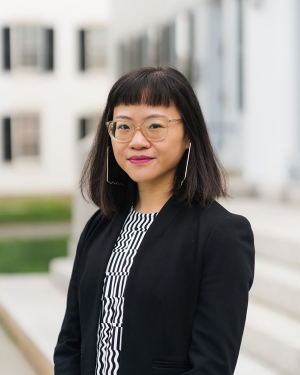
Assistant Professor of Women's, Gender, and Sexuality Studies
Faculty Fellow, Dartmouth Consortium of Studies in Race, Migration, and Sexuality
- PhD, University of Minnesota, Twin Cities
- BS, University of Wisconsin, Madison
My research explores novel configurations of race, capitalism, and empire in the 21st "Chinese Century" in Johannesburg, South Africa. Through ethnography, I trace the transnational mobilities of people and money, historically layered worlds Chinese migrants make in places sedimented with the afterlives of colonial and racial capitalism, and complicated intimacies, racial distrust, and labor struggles between everyday Chinese and African actors. From my humble research sites, we can see the horizon of an Afro-Asian epoch in the making.
On curiosity: As an interdisciplinary scholar, curiosity motivates me to put ideas, histories, places, and intellectual traditions together in new ways. When I'm doing fieldwork, curiosity is an intuition that propels me toward the unexpected and makes ethnography fun and exciting. In class, we learn to be curious about knowledge—what counts as knowledge and why, and the particular ways we know. Curiosity sparks our collective imagination to create ways of being in and transforming often inhospitable worlds.
Jennifer Jerit
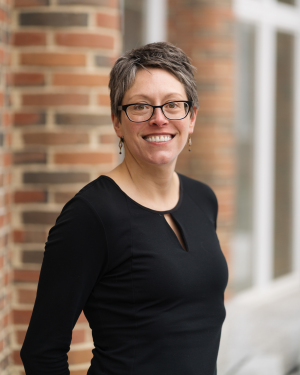
Professor of Government
- PhD, University of Illinois at Urbana-Champaign
- MA, University of Illinois at Urbana-Champaign
- BA, Vanderbilt University
I study American government with a focus on public opinion and political communication. My research explores how information (from elected leaders, journalists, and other citizens) influences a person's attitudes as well as their knowledge about the political world. In addition to political knowledge, I study misinformation and techniques for correcting this problem. Finally, I conduct research into the best practices for the measurement of public opinion through survey and experimental methods.
On curiosity: Curiosity is contagious. It propels a researcher to build upon the work of others and to expand the frontiers of knowledge in their chosen field. As a teacher, I try to give my students a window into this world. Ultimately, I hope my enthusiasm for learning and research will inspire them to do great things at Dartmouth and beyond.
Rebecca Johnson
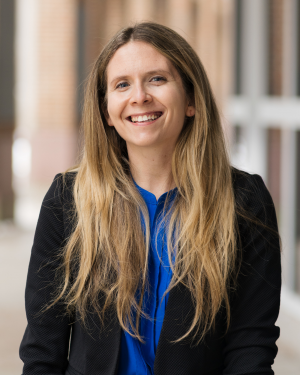
Assistant Professor, Quantitative Social Science
- PhD, Princeton University
- MA, Stanford University
- BA, Stanford University
My research studies how social service bureaucracies use a mix of data and discretion to decide who should receive help. I focus predominantly on K-12 schooling and rental housing and use methods that include automated text analysis, lab and field experiments, and large-scale administrative data. In conjunction with that research, I partner with government agencies on how to use tools from data science to make prioritization more equitable.
On curiosity: Curiosity is the cornerstone of my research and teaching, and why I'm thrilled to be in a department like QSS that breaks down boundaries between disciplines. Curiosity has driven academic transitions of mine, like shifts from working on tough questions in ethics to studying how ethics play out in real-world settings. I hope I can foster students' interest in new tools for studying the many questions about the social world that spark their curiosity.
Sunmin Kim
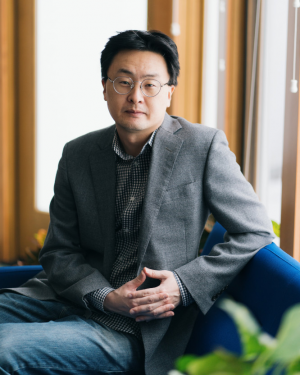
Assistant Professor of Sociology
Faculty Associate, Dartmouth Consortium of Studies in Race, Migration, and Sexuality
- PhD, University of California, Berkeley
- MA, Seoul National University
- BA, Seoul National University
My primary interest lies in the intersection of race and immigration in the United States. I study how we came to perceive the various kinds of people as we do today, as a result of extended political, social, and cultural processes. What does it mean to distinguish someone as a "foreigner"? Why do we rely so much on the categories of Black, white, Asian, Latino, and Native American to map out the terrain of social differences, whether we like to admit it or not? What really is "American" (and what is not)? To tackle these questions, I am writing a book on how in the early twentieth-century federal bureaucrats and social scientists articulated the ideas about race and nation in the U.S. through a massive, state-led data collection initiative.
On curiosity: For me, curiosity is an ability to doubt and re-think what is taken for granted. Sociologist Pierre Bourdieu argued that the social world is filled with "illusio"—an illusion that makes people perceive reality in a certain way. Simply put, things have not been this way and definitely do not have to be this way, but we are often mired in what we think is "normal." Sociology encourages the kind of curiosity that goes beyond these illusions and urges its students to reimagine what people, things, and society would be like if we took a different course of action in the past. This way curiosity sets one free from the limits of his or her own experiences and surroundings, allowing them to reimagine the world around them. My work on race and immigration in the U.S. embodies some of these general principles. As an immigrant and minority scholar, I constantly feel the weight of history in both my personal and academic life.
Lauren Lu
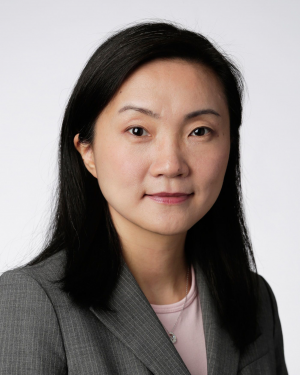
Associate Professor of Business Administration
Daniel R. Revers T'89 Faculty Fellow
- PhD, Northwestern University
- MS, Stanford University
- MA, John Hopkins University
- BS, Nanjing University
My research centers on optimizing firms' strategic and operational decisions in the broad context of supply chain management. Most recently, I study data-driven retail operations with a focus on understanding how operational levers such as inventory, staffing, and product assortment affect firm profitability. My research also investigates the performance of various healthcare systems with a focus on nursing home operations and care delivery for heart attack patients.
On curiosity: Curiosity drives my research ideas. I work with real-world data that are collected from a wide range of industry contexts. My initial analysis of these data might not always give rise to intuitive or expected findings. When this happens, my research is to get to the bottom of it and aims to explain the "unexpected" findings. Inspiring curiosity also shapes my teaching style. I always try to encourage students to propose solutions for real-world managerial problems. Through discussions and debates, I co-create knowledge with students.
Shagufta Mehnaz
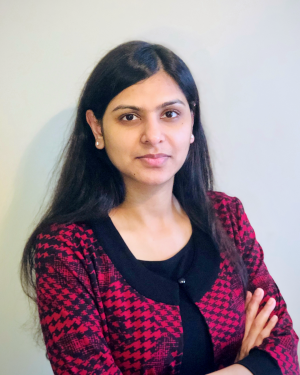
Assistant Professor of Computer Science
- PhD, Purdue University
- MS, Purdue University
- BSc, Bangladesh University of Engineering and Technology
My broad research interest is at the intersection of security, privacy, and machine learning. I am particularly passionate about building practical data-driven systems that take into account both data privacy and security while also keeping the intended functionality of the system unimpaired.
On curiosity: Curiosity is what drives my research—investigating security and privacy problems in emerging domains.
Jorell Meléndez-Badillo
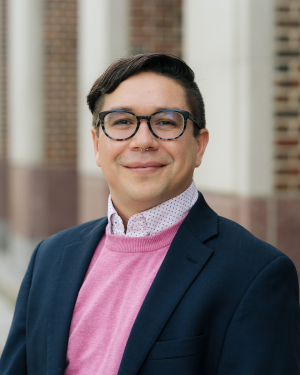
Assistant Professor of History
Faculty Associate, Dartmouth Consortium of Studies in Race, Migration, and Sexuality
- PhD, University of Connecticut
- MA, Universidad Interamericana de Puerto Rico
- BA, Universidad Interamericana de Puerto Rico
My scholarly work is broadly situated at the intersections of intellectual history, transnational studies, and working-class history. My research pays particular attention to the global circulation of radical ideas from the standpoint of working-class intellectual communities in Latin America and the Spanish-speaking Caribbean.
On curiosity: Much like the vibrant culture of working-class knowledge production that I explore in my scholarship, my pedagogical philosophy emphasizes the experiences of those in the margins. I also envision each class as a "scholarly laboratory" where students engage in the production of history while refining an intellectual toolbox composed of critical thinking, source analysis, and the creation of informed arguments.
Steven Mello
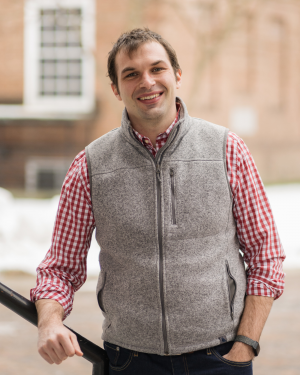
Assistant Professor of Economics
- PhD, Princeton University
- MA, Princeton University
- BA, Hamilton College
I am an applied microeconomist interested in inequality. My research uses large datasets to study the benefits, costs, and equity implications of public policies. My recent work has focused on the criminal justice system and has examined topics such as racial discrimination in policing and the impact of criminal justice fines on the financial situations of low-income households.
On curiosity: As a researcher, curiosity not only inspires me to ask new questions but also motivates me in the pursuit of answers. As a teacher, I enjoy fostering and encouraging the curiosity of my students.
Elizabeth Murnane
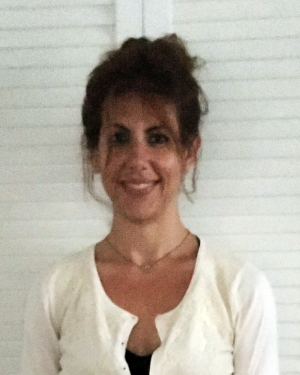
Charles H. Gaut and Charles H. Norberg Assistant Professor of Engineering
- PhD, Cornell University
- MS, Cornell University
- BS, Massachusetts Institute of Technology
My research is in human-computer interaction and people+planet-centered design, with a focus on applications in health, education, and sustainability. In my interdisciplinary lab, we engineer technologies that aim to study the human condition, positively shape human behaviors and experiences, or provoke critical reflection about how such computational systems impact upon society.
On curiosity: Humans are inherently curious beings! As a scientist, I'm incredibly fortunate to have a profession based on pursuing my own desire to continually learn through research as well as encouraging that natural passion for exploration in my students, in the lab, and in the classroom.
Diego Ramos-Toro
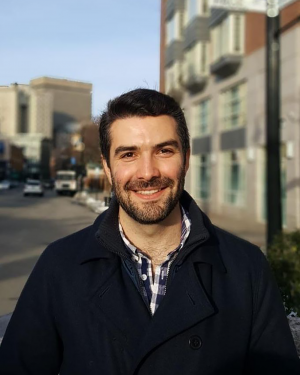
Assistant Professor of Economics
- PhD, Brown University
- MA, Brown University
- BS, Universidad de Los Andes
- BA, Universidad de Los Andes
I am an economist who studies political economy, economic history, and development economics. My research focuses on development outcomes and development policies that are shaped or curbed by historically-determined social preferences. My work also incorporates insights from behavioral economics, experimental economics, and culture economics.
On curiosity: Curiosity is the bedrock of my work. I constantly try and fail to fully understand the complexities and the interconnectedness of society and biology, past and present. This constant attempt at grasping and unveiling such connections is what motivates my research. Conveying such complexities to students is what inspires my teaching.
Matthew Ritger '10
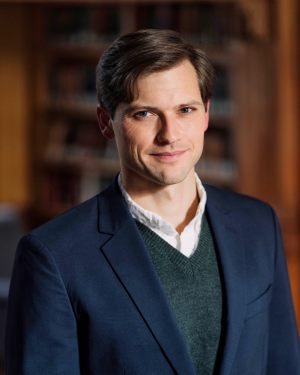
Assistant Professor of English and Creative Writing
- PhD, Princeton University
- MA, Princeton University
- MFA, Cornell University
- BA, Dartmouth College
My research and teaching focus on English literature and culture of the 16th and 17th centuries. I am particularly interested in connections between historical literature and its wider world, especially moments when Renaissance poetry and drama helped to articulate otherwise unthinkable political ideas. I'm currently working on a book about how writers like Thomas More, Shakespeare, and Milton engaged with early modern England's houses of correction, which were some of the world's first reformist prisons.
On curiosity: Thinking with metaphors means setting aside "either/or" answers and inhabiting the possibility that something could be "both … and" instead. That requires curiosity. When it comes to historical literature like Shakespeare, you find yourself wanting to know everything you can about the politics, religion, and other norms of his time and place. But literary curiosity goes beyond that. Literature is a feeling world, another language inside our own. That language can tell us how things are, but it doesn't only do that. It can also help us feel more than we realized was there.
Pamela Rosato, Geisel '15
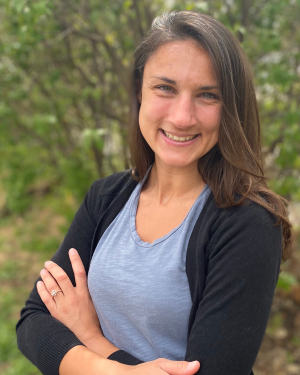
Assistant Professor of Microbiology and Immunology
- PhD, Geisel School of Medicine
- BS, The College of William & Mary
Memory T cells are an important part of protecting us against being re-infected from a pathogen, and I study memory T cells that, instead of circulating through blood and lymph, actually reside in tissues throughout the body. We are interested in fundamental questions about their prevalence and distribution as well as their function, with the ultimate goal of using that knowledge in the context of cancer and vaccine design.
On curiosity: New research directions are always being driven by curiosity. One exciting research focus of my lab stemmed from an unexpected observation made during my postdoc. I was surveying tumors and tissues for virus-specific memory T cells and had the opportunity to look in a brain tumor. I remember getting our first sample in the lab and everyone taking bets on if we'd see anything. (The consensus was no—at the time, the brain wasn't an organ where you'd expect much immune action to be happening). Then, when I ran the sample and saw the data, I thought I had made a mistake, but nope—it was real! We saw memory T cells specific for common viral infections in brain tumors. Now we have a lot of exciting new directions driven by that first observation.
Lucas Salas
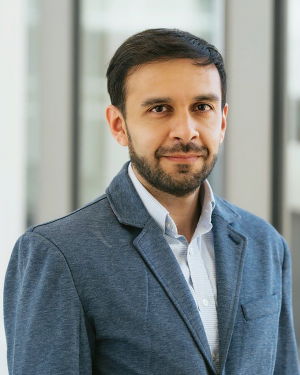
Assistant Professor of Epidemiology
- PhD, Universitat Pompeu Fabra
- MPH, Universitat Pompeu Fabra
- BS Epidemiology, Universidad de Antioquia
- MD, Universidad Nacional de Colombia
My work focuses on understanding cell heterogeneity as a plastic adaptation in normal and pathological conditions, emphasizing kidney cancer. I use computational methods to dissect molecular markers, e.g., DNA methylation, with the long-term goal of developing accurate biomarkers for cancer prognosis and monitoring responses to cancer therapies.
On curiosity: As a physician-scientist, I am intrigued by how the human body responds to a disease or environmental aggressions. Connecting current knowledge and filling the gaps in that puzzle is the primary driver of my research.
Kimberley Samkoe
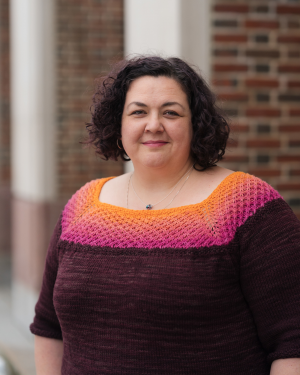
Associate Professor of Engineering
- PhD, University of Calgary
- BSc, University of Regina
Trained as a biochemist and biophysical chemist, my research takes a biological-systems-engineering approach to medical imaging by studying how microscopic molecular information can be interpreted at a macro-scale. My current research interests involve quantitative assessment of in vivo protein expression and signaling using fluorescence molecular imaging. These methodologies have applications in cancer for improving tumor identification, surgical resection, and patient-specific therapeutic monitoring.
On curiosity: Curious observation is inherently the driving force of learning, not only in the classroom and the research lab, but also out in the world around us. The question "why?" is a powerful force for advancing knowledge and understanding.
Darius Scott
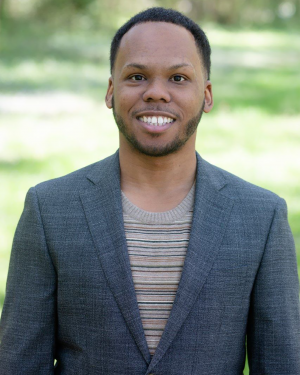
Assistant Professor of Geography
Faculty Associate, Dartmouth Consortium of Studies in Race, Migration, and Sexuality
- PhD, University of North Carolina at Chapel Hill
- BA, Morehouse College
My research focuses on narratives of place and place-making. Using oral histories and other firsthand accounts, I explore how people describe negotiating socio-spatial contexts of racial and sexual stigma, violence, and marginalization in the United States. I am particularly interested in foregrounding historically silenced (perspectives of) places and place-based instances of ameliorative social collectivity that challenge antiblackness.
On curiosity: As someone who records oral histories, I often listen to narrators tell stories that are well beyond the scope of my research topics. Being curious helps. Sometimes, I am surprised by how a seemingly unrelated story offers an important lesson. Other times, I am happy to have simply listened, which is the least I can do as a researcher. In my work, curiosity is an important practice.
Gregory Sharp
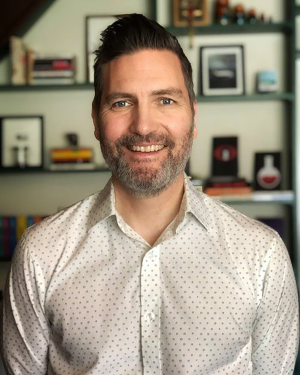
Assistant Professor of Sociology
- PhD, Pennsylvania State University
- MA, Bowling Green State University
- BA, Bowling Green State University
My research is focused on the ways in which inequality manifests across place, space, and time. In pursuit of this broader interest, my work contributes to scholarship in the areas of population health, urban/community sociology, and residential/housing stratification.
On curiosity: Curiosity fuels my interest in attempting to understand how and why neighborhoods matter for individuals' lives and life chances.
Meredith Startz
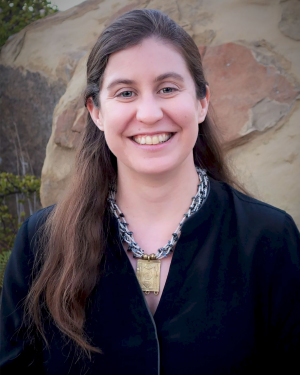
Assistant Professor of Economics
- PhD, Yale University
- BA, Yale University
My research looks at economic development and trade, both within and between countries. I focus on how contract enforcement problems shape transactions and firms in developing countries. For instance, I survey wholesale traders in West Africa to understand their role as intermediaries in a global supply chain and the strategies they use to operate in an environment with poor financing and contract enforcement options.
On curiosity: My favorite aspect of the research process is the opportunity to immerse myself in a context that is unfamiliar, and to begin to notice all the large and small patterns of behavior and interaction that are puzzling to an outsider. The desire to untangle and understand these patterns is, to my mind, what social science is about.
Viola Stoermer
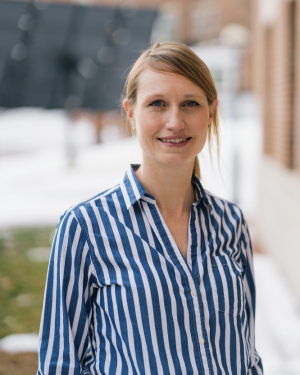
Assistant Professor of Psychological and Brain Sciences
- PhD, Max Planck Institute for Human Development
- MA, Humboldt University
- BA, Humboldt University
My research focuses on understanding and characterizing human's perceptual and cognitive abilities, as well as their capacity limitations. My lab studies perception, attention, and memory, with a particular focus on how events from different sensory modalities (sight, sound, touch) are integrated into real-world, multi-modal objects. We study these topics using a combination of psychophysics, experimental psychology, and neuroimaging, especially electroencephalogram (EEG).
On curiosity: Curiosity about the mind and brain drives most of my research and teaching. Why do we see optic illusions, and what does that tell us about the visual brain? How do I know where and what to attend to, and how does that change my perceptual experience with it? Why do we forget some things, but remember others in great detail?
Arjen Stolk
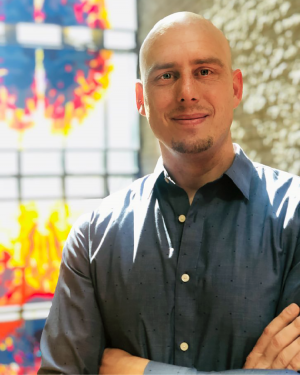
Assistant Professor of Psychological and Brain Sciences
Academic Cluster: Breaking the Neural Code
- PhD, Radboud
- MSc, University of Groningen
- BSc, University of Groningen
The research in my lab focuses on the principles and mechanisms of human mutual understanding. To this end, we combine controlled studies of live communicative interaction with neuroimaging and electrophysiological recordings, including direct brain recordings from neurosurgical patients. The goal is to create a fine-grained characterization of our mutual understanding abilities, opening the way for understanding and treating disorders of human social interaction such as seen in autism.
On curiosity: When it comes to discovery research, one cannot be curious enough. The constant urge to find answers as well as to generate the appropriate question fuels my research. Accordingly, I consider eliciting scientific curiosity a primary target for teaching, more so than just transferring knowledge and facts.
Mark Thornton
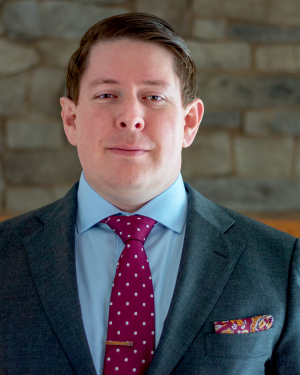
Assistant Professor of Psychological and Brain Sciences
- PhD, Harvard University
- BA, Princeton University
My research focuses on social knowledge and social prediction. I study how our minds and brains make sense of other people's mental states, traits, actions, and situations. I try to understand how we organize and use this knowledge in socially adaptive ways, such as anticipating how other people are likely to feel or behave in the future.
On curiosity: Curiosity drives all aspects of my research, from the questions I investigate to the methods I use to answer them. My teaching also draws on curiosity to engage students and motivate them to develop their knowledge and skills.
Tricia Treacy
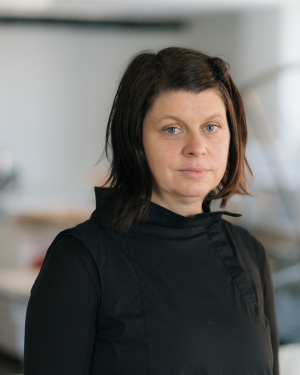
Associate Professor of Studio Art
- MFA, The University of the Arts
- BA, West Virginia University
My teaching and studio practice are intertwined—filtering into each other in obvious and unexpected ways—preserving print as a catalyst for communication and an agitator for blurring the lines between art and design. Outcomes include collaborative publications, installations, artist books, and print media that disseminate visual narratives on human interactions, mapping, repetition, privacy, methods of communication, investigations of creative processes, and often a confluence of disparate ideas.
On curiosity: Curiosity motivates research, inquiry, and play. It brings about the opportunity to introduce new materials/tools, protocols, sounds, questions, and conversations to our practice.
Wenlin Zhang
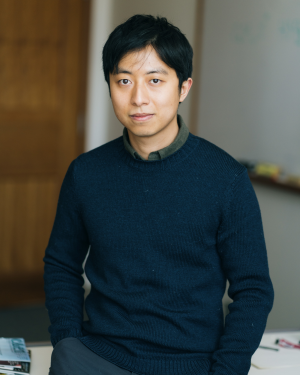
Assistant Professor of Chemistry
- PhD, Pennsylvania State University
- BS, University of Minnesota
My research focuses on multi-scale simulations and statistical mechanics of soft matter, such as polymers and liquid crystals. I am interested in how chemical structures and compositions, together with processing conditions, can affect phase behaviors, assembly, and material properties. The physical understanding of material behaviors at different length and time scales helps us navigate the vast design parameter space for high-performance materials.
On curiosity: My curiosity drives me to work on the structural and dynamical behaviors of molecules at the microscopic level and develop simplified models to describe those behaviors in complex materials. It also results in my love of physical chemistry that I hope to share with my students.
Megan Landgraf can be reached at Megan.A.Landgraf@dartmouth.edu.